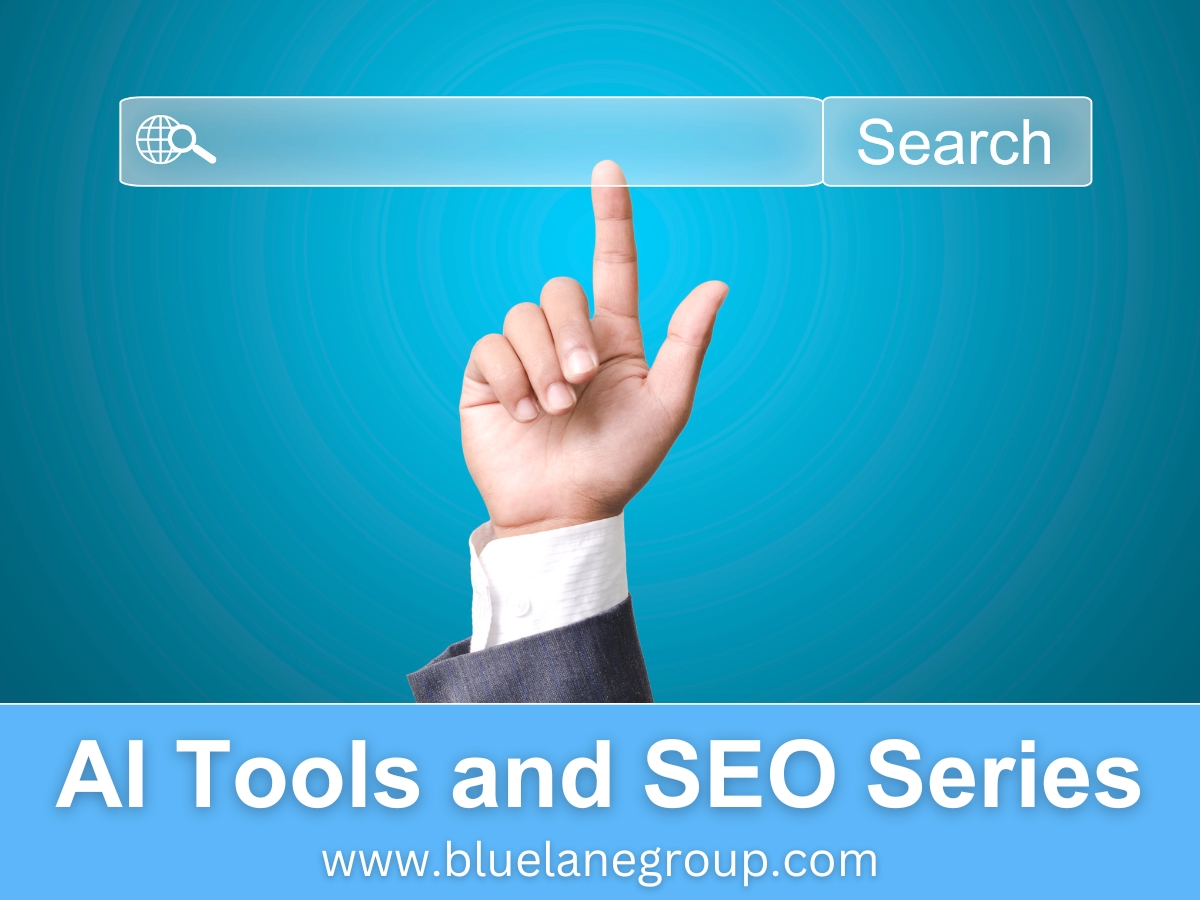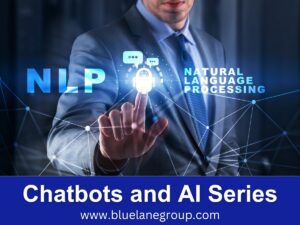Introduction: AI and Search Intent, a Paradigm Shift
In this insightful guide, we’ll examine the union of AI and search intent, delving into tactics that can significantly optimize conversions. You’ll discover the role of artificial intelligence in understanding and leveraging user search intent for more effective SEO and marketing campaigns.
Quick Rundown – For The Time-Crunched Reader
- AI technologies have revolutionized the way we understand search intent. Using machine learning algorithms, you can better anticipate customer needs, refine keyword targeting, and increase conversions. These tactics provide a well-rounded SEO strategy that ranks well and fulfills user needs, effectively turning clicks into customers.
- In an online world of competition, utilizing AI to grasp search intent can give you a distinctive edge. It allows for more personalized, relevant content that resonates with your audience. By understanding the intricacies of search intent through AI, you’re laying the groundwork for a more effective and engaging user experience.
Welcome to the nineteenth article in the Blue Lane Group series on AI Tools and SEO: Building Tomorrow’s Search Strategies Today. This series examines how artificial Intelligence is reshaping the field of search engine optimization, offering tools and strategies to boost website rankings, improve user engagement, and make content more relevant.

Disclosure: The digital products mentioned in this article are highly regarded in the marketplace and are endorsed by the Blue Lane Group staff. We may earn a commission at no additional cost if you purchase through the provided links.
Table of Contents

Why Understanding Search Intent is Crucial
In this section, we will discuss the essential role of search intent in shaping successful SEO and digital marketing strategies. Understanding search intent isn’t just about identifying relevant keywords; it’s about comprehending what the user is genuinely looking for and tailoring your content to meet those needs.
Practical search intent analysis can drastically improve user engagement, conversion rates, and overall satisfaction. It’s the cornerstone of modern SEO practices, aligning the consumer’s needs with the content they find. Not grasping this crucial concept could mean a significant loss in potential revenue and decreased website traffic.
Traditional Search Intent Analysis vs. AI-Driven Analysis
Traditional methods of analyzing search intent often involve manual processes and rely on basic metrics and keyword analysis. While effective to a certain extent, these methods lack the depth and real-time adaptability of AI-driven research.
Tools like Ahrefs and SEMrush have elevated the practice by incorporating AI algorithms that provide a more profound, more nuanced understanding of search intent.
What Makes AI-Driven Search Intent Analysis Different
The uniqueness of AI-driven search intent analysis lies in its capability to adapt in real time and offer predictive analytics. Unlike traditional methods, AI algorithms sift through vast data sets, recognize emerging patterns, and anticipate future search queries.
Tools like MarketMuse and Clearscope leverage machine learning and natural language processing to decode complex search behaviors. These tools enable businesses to get ahead of the curve, optimizing their content strategies in ways that were previously unimaginable.

How AI Analyzes and Adapts to Search Intent
AI-driven tools use complex algorithms that analyze user behavior, keyword patterns, and even social signals to understand what a user is looking for. AI algorithms work in the background to offer real-time insights into search intent.
Products like Google Search Console and Conductor employ these algorithms to understand and predict search intent, allowing for timely and effective SEO adjustments. This level of analysis goes beyond just identifying what users are currently interested in, providing insights into what they will be interested in the future.
The Algorithms Behind AI and Search Intent
Artificial Intelligence algorithms in search intent analysis are game-changers in SEO strategies. These algorithms, often based on machine learning models, go beyond simple keyword matching to understand semantic relationships, the context in which terms are used, and even sentiment.
The technical aspects of these algorithms examine how they analyze and interpret data in real time. Moz, for instance, has made strides in leveraging complex algorithms to offer more sophisticated insights into search intent.

Key Features in AI-Driven Search Intent Tools
AI-driven search intent tools come with various features designed to offer deep insights and actionable recommendations. These features, from predictive analytics to natural language processing and sentiment analysis, are tailored to provide a holistic understanding of user behavior.
Capabilities offered by Clearscope and SEMrush enable businesses to adjust SEO strategies on the fly, maximizing engagement and conversions.
Real-time Search Intent Analysis
One of the standout features of AI-driven search intent tools is their ability to conduct real-time analysis. This means these tools continually update the data they provide, offering timely insights that can be immediately acted upon.
Real-time analysis is crucial for effectively adapting to market changes. Tools like Conductor and MarketMuse excel in this area, leveraging real-time analytics to offer actionable SEO insights that are both current and predictive.
Contextual Understanding in AI and Search Intent
Understanding the context in which a search query is made is crucial for effective SEO. AI-driven search intent tools are adept at analyzing the words in a search query and the context behind them.
They look at factors such as location, device type, previous search history, and even the specific wording and arrangement of the query to determine its intent.
AI algorithms achieve this level of contextual understanding by providing a more nuanced and complete picture of user behavior. Google Search Console, for example, incorporates this contextual information to enhance the accuracy of its intent predictions.

Case Studies: AI in Search Intent
This section will showcase real-world examples and success stories where businesses have effectively utilized AI in understanding search intent.
These case studies will illustrate how tools like Moz and Clearscope have impacted business metrics, including increased traffic, improved user experience, and higher conversion rates. Specific scenarios where AI’s role was pivotal in interpreting search intent, offering actionable insights that led to successful campaigns.
Enhancing User Experience Through AI and Search Intent
Improving user experience is multifaceted, and AI-driven search intent analysis plays a crucial role. AI tools such as SEMrush and Conductor can help deliver more relevant content, make navigation more accessible, and increase user engagement.
These AI tools offer insights that can be used to customize user journeys, tailoring website content and structure to align with what the users are genuinely looking for.
Increasing Conversions with AI-Driven Search Intent Analysis
Conversions are the end goal of any SEO strategy, and understanding search intent is vital in achieving this. AI-driven search intent analysis tools like MarketMuse and Google Search Console can be pivotal in optimizing the user’s path from search query to conversion.
Tactics and strategies that employ machine learning and AI algorithms to identify patterns in user behavior that indicate purchase intent, thereby informing a more effective conversion optimization strategy.

Challenges in Implementing AI for Search Intent
Despite AI’s myriad advantages in search intent analysis, there are challenges to consider. This section will discuss challenges such as data privacy concerns, scalability, and the complexity of setting up and maintaining AI algorithms. Tools like Clearscope address these challenges to offer reliable, efficient, and privacy-compliant services.
Data Privacy Concerns in AI and Search Intent
Data privacy is one of the most pressing challenges in implementing AI for search intent. In a world where data breaches are increasingly common, ensuring user data’s safety is paramount.
AI tools like Clearscope and Conductor often collect vast amounts of data to analyze search intent accurately. Data protection measures these tools employ and how businesses can mitigate risks while remaining compliant with regulations such as GDPR. We will also look at the role of anonymization and encryption in safeguarding user information.
Scalability Challenges in AI-Driven Search Intent Analysis
Scalability is often a concern when implementing AI and machine learning solutions, particularly for large enterprises with massive datasets. While AI tools like MarketMuse and Moz offer scalable solutions, they come with challenges, such as increased computational requirements and the need for specialized expertise.
These tools tackle scalability issues, including cloud-based solutions, and offer tips on what businesses should consider when scaling their AI-driven search intent analysis efforts.

Future Trends in AI and Search Intent
The field of AI-driven search intent analysis is rapidly evolving, promising even more accurate and insightful tools in the future. Technologies such as Natural Language Processing (NLP) and Neural Networks are continually improving, which will undoubtedly impact tools like SEMrush and Google Search Console.
Emerging trends include voice search integration, the growing importance of semantic search, and how AI might leverage real-time data for even more precise search intent predictions.
How to Choose the Right AI Tools for Search Intent Analysis
Choosing the right tool often makes or breaks your search intent analysis strategy. There are numerous factors to consider, such as ease of use, scalability, and, most importantly, how accurately the tool can analyze search intent.
This section will provide a comprehensive guide on how to pick the right AI tool for your needs, comparing features from Moz, MarketMuse, Clearscope, and SEMrush. We will explore aspects like cost-efficiency, user-friendliness, and the robustness of analytics offered to help you make an informed decision.

FAQ: Your Top Questions on AI and Search Intent Answered
Navigating the complexities of AI and search intent can be daunting, given the rapid advancements in technology and methodologies. This FAQ section aims to answer your most burning questions, offering insights into the capabilities and limitations of AI-driven search intent analysis.
Why is AI Important for Understanding Search Intent?
Artificial Intelligence brings a new layer of sophistication to understanding search intent. Conventional methods often rely on manual keyword research and basic analytics, which can be time-consuming and may not capture the full scope of user intent.
AI, however, can process enormous datasets at high speeds, leveraging algorithms to discern patterns and preferences that might go unnoticed otherwise. Tools like Google Search Console and Clearscope use AI to offer a deeper, more nuanced understanding of what users seek, enabling more targeted, effective SEO strategies.
How is AI-Driven Search Intent Analysis Unique?
AI-driven search intent analysis sets itself apart through its ability to continuously adapt and learn from data. While traditional tools provide a static snapshot of user behavior, AI-powered tools like Moz and MarketMuse offer dynamic, real-time insights.
They use complex algorithms and machine learning models to understand the keywords users type and the underlying intent behind those queries. This capability allows for more accurate content optimization and more effective marketing strategies.
Is Data Privacy a Concern with AI in Search Intent Analysis?
Data privacy is a significant concern when implementing any AI-driven tool, and search intent analysis is no exception.
Since tools like Conductor and Clearscope often require access to vast amounts of user data to operate effectively, it’s crucial to ensure that they comply with data protection laws such as GDPR. Companies must be vigilant about collecting, storing, and using data, opting for tools prioritizing secure data handling and encryption.

Conclusion: The Future of Search Intent in the Age of AI
As we look toward the horizon, it’s clear that AI will continue to revolutionize how we approach search intent and SEO strategies.
What used to be a manual and often imprecise effort to understand user behavior is now becoming a highly sophisticated, data-driven practice. These advancements enable more accurate and real-time insights and offer scalable solutions for businesses of all sizes.
However, with great power comes great responsibility. Integrating AI into search intent analysis raises important questions about data privacy and ethical considerations. As technology continues to evolve, it will be essential for organizations to be proactive about implementing secure and responsible practices.
The future is undoubtedly promising but requires a balanced approach that harmonizes technological capabilities with user expectations and legal frameworks. All signs point to AI as a transformative force in understanding and capitalizing on search intent, setting the stage for more personalized, effective, and ethical SEO practices in the coming years.

You Might Also Like:
If you enjoyed this article and received value from it, check out the other Blue Lane Group articles in the AI Tools and SEO: Building Tomorrow’s Search Strategies Today series:
- Uncover Hidden Opportunities: AI in User Behavior Analytics Tools
- Elevate Your Strategy: The Importance of SEO Optimization
- The Role of AI in SERP Analysis: A Revolutionary Approach
- Transform User Experience: Content Personalization with AI
- Boost Your Site’s Performance: AI in Technical SEO Audits
- Outsmart Your Rivals: AI in Competitive SEO Analysis
- Transform Your Content Strategy: AI-Driven Content Generation Revealed
- AI Link Building: The Secret to Unbeatable SEO
- Breakthrough Technology: Using AI for Image and Video SEO
- Drive More Traffic: Leveraging AI SEO Mobile Strategy
- Drive Engagement: How Sentiment AI Analysis for SEO Works
- Maximize ROI: Using an AI-Driven SEO Dashboard and Reporting Effectively
- Thrive Locally: AI Local SEO Tools You Can’t Ignore
- Ignite Sales: Utilizing AI for PPC Campaigns Strategies
- Amplify Your Reach: The Best Influencer Tools Powered by AI
- Elevate Rankings: AI in Social Media and SEO Strategies
- Optimize Success: Understanding AI Semantic Search for SEO
- Unleash the Power: AI and SEO Strategies Using Machine Learning
- Optimize Conversions: AI and Search Intent Tactics





